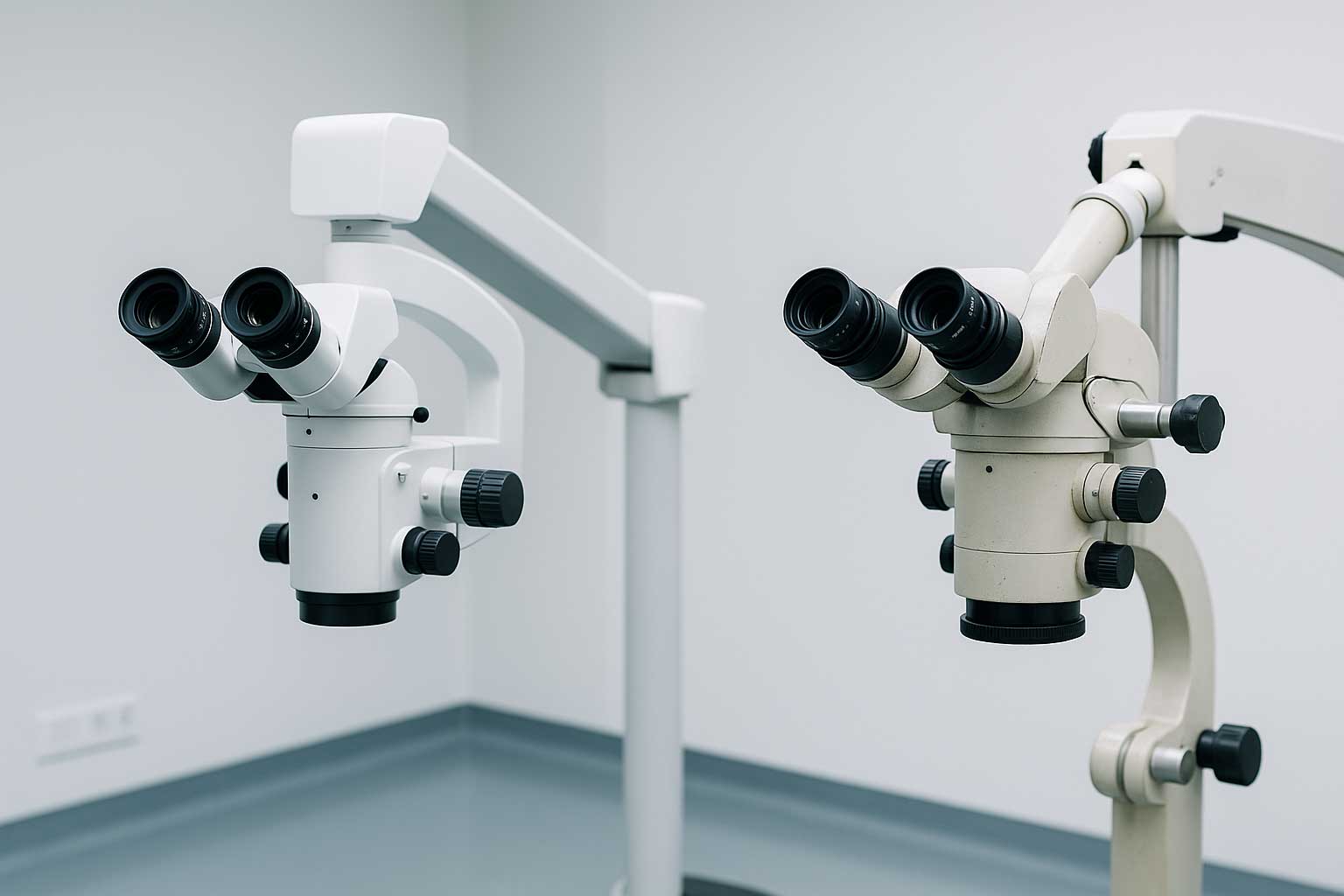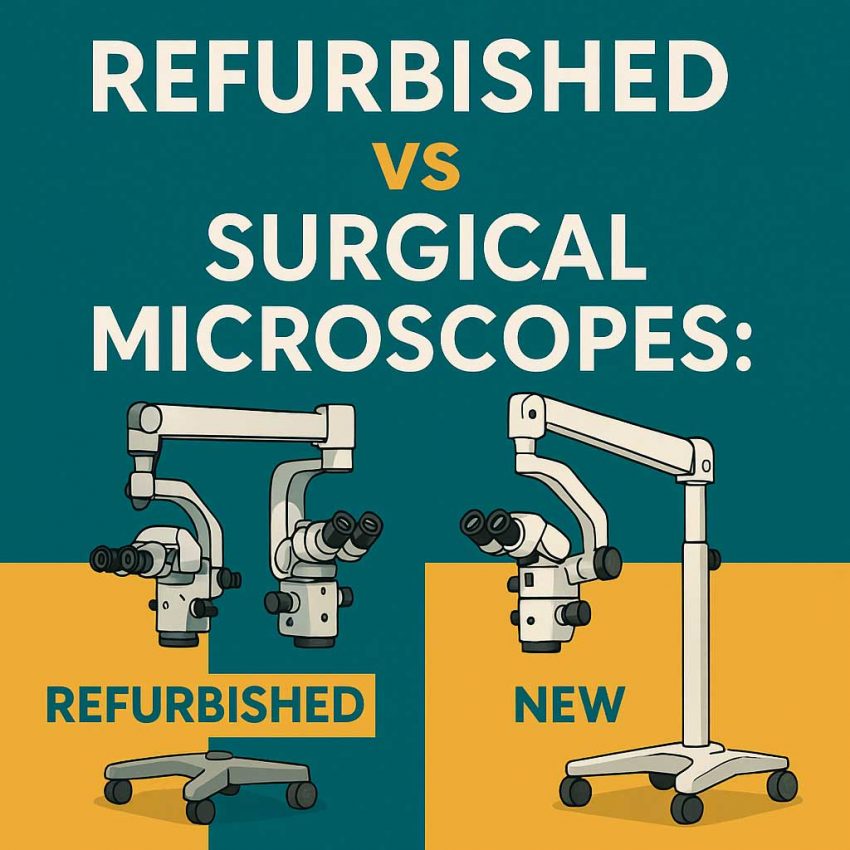Choosing the right surgical microscope is a major investment for any medical facility or practice, both new and refurbished surgical microscopes serve valuable roles depending on your situation
While new models boast cutting-edge features, refurbished microscopes offer an attractive alternative—especially for those working within tighter budgets. Refurbished models make advanced tools accessible to more healthcare providers. By carefully assessing your clinical needs and financial capacity, you can confidently choose the best microscope solution for your practice. But is saving money worth it in the long run? In this article, we’ll explore the pros and cons of refurbished vs new surgical microscopes to help you make an informed decision.

What Is a Refurbished Surgical Microscope?
A refurbished surgical microscope is a previously used unit that has been:
- Disassembled
- Inspected
- Repaired or upgraded (if necessary)
- Cleaned and tested to meet operational standards
Reputable refurbished often replace worn parts, recalibrate the optics, and provide warranties—making these devices function like new at a fraction of the cost.
New Surgical Microscopes: Key Benefits
Buying a brand-new surgical microscope comes with several important advantages:
1. Latest Technology
You’ll have access to the newest innovations, such as:
- Digital imaging integration
- 4K and 3D visualization
- Fluorescence filters
- LED lighting systems
- Ergonomic improvements
2. Full Manufacturer Warranty
New models come with complete OEM support, including:
- Parts & service warranty (1–5 years)
- Software updates
- Immediate tech support
3. Zero Usage History
You get a product with no wear and tear—ensuring optimal performance, longevity, and resale value.
Refurbished Surgical Microscopes: Pros and Cons
Advantages
- Cost Savings: Refurbished units can cost 30% to 60% less than new ones.
- Reliable Performance: When sourced from reputable refurbishers, many models meet or exceed expectations.
- Faster ROI: Lower upfront investment means faster cost recovery—ideal for small practices.
Potential Drawbacks
- Limited Warranty: Typically 6–12 months compared to longer OEM warranties.
- Older Technology: May lack newer digital or ergonomic features.
- Variable Quality: Depends heavily on the refurbisher’s reputation and process.
Cost Comparison: New vs Refurbished (2025 Estimate)
| Model | New Price | Refurbished Price | Savings |
|---|---|---|---|
| Zeiss OPMI PROergo | $75,000 | $42,000 | ~$33,000 |
| Leica M320 | $55,000 | $30,000 | ~$25,000 |
| Global A-Series | $30,000 | $18,000 | ~$12,000 |
Which One Should You Choose?
Your decision should depend on your clinical needs, budget, and long-term goals:
Choose New if:
- You require the latest features for complex or high-precision surgery
- Your budget allows for long-term investment
- You want full manufacturer support and warranty
Choose Refurbished if:
- You’re just starting out or expanding on a limited budget
- You perform routine procedures that don’t require cutting-edge tech
- You want better quality without the full price tag
Tips When Buying Refurbished
- Buy from certified refurbishers or authorized resellers
- Ask for service history, testing reports, and replaced parts
- Ensure a warranty and return policy are provided
- Inspect optics and mechanical systems during delivery
